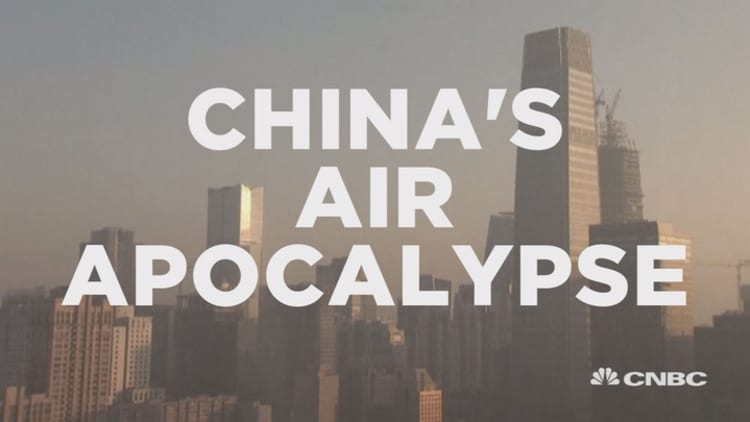China and the United States are set to jointly announce their ratification of a landmark climate change pact before the G20 summit early next month, the South China Morning Post has learned.
Senior climate officials from both countries worked late into the night in Beijing on Tuesday to finalize details, and a bilateral announcement is likely to be made on September 2, according to sources familiar with the issue.
President Xi Jinping will meet his U.S. counterpart Barack Obama for the G20 summit in Hangzhou, Zhejiang province, two days later on September 4.
"There are still some uncertainties from the U.S. side due to the complicated U.S. system in ratifying such a treaty, but the announcement is still quite likely to be ready by Sept 2," said a source, who declined to be named.
If both sides announce the ratification on the day, it would be the last major joint statement between the two leaders before Obama leaves office.
China and the U.S. account for about 38 per cent of global greenhouse gas emissions, according to the World Resources Institute.
By ratifying the Paris Agreement on climate change, Beijing and Washington could generate momentum for the accord to come into effect as a binding international treaty.
The pact agreed by representatives from 195 countries in Paris last December aims to keep the increase in the global average temperature to well below 2 degrees Celsius on pre-industrial levels.
More from the South China Morning Post:
How China, the 'world's largest polluter', is taking on climate change
China and the US create a new climate for international collaboration on the environment
'I may do something else': Donald Trump's threat to renegotiate UN climate deal greeted with widespread dismay
Countries began the ratification process on April 22, Earth Day, and by Tuesday, 23 nations had joined, but they account for just 1 per cent of emissions.
The treaty will enter into force only after 55 countries representing at least 55 per cent of emissions ratify or join the deal in other ways.
China had said earlier it would ratify the accord before the G20 summit in September.
In June, the U.S. said it would "work towards" approving the deal before end of the year, with the White House keen to seal a key part of Obama's environmental protection legacy before he leaves office in January.
U.S. law allows the nation to join international agreements in a number of ways, including through the authority of the president.

With China and U.S. joining, some civil society trackers say they are confident the deal could hit the 55 per cent threshold before the end of the year.
On Wednesday, investors managing more than US$13 trillion of assets urged leaders of the Group of Twenty major economies to ratify the deal before the end of December.
The 130 investors also called for the G20 to double global investment in clean energy, develop carbon pricing and phase out fossil fuel subsidies.
"Governments must ratify the Paris agreement swiftly and have a responsibility to implement policies that drive better disclosure of climate risk, curb fossil fuel subsidies and put in place strong pricing signals sufficient to catalyse the significant private sector investment in low carbon solutions," said Stephanie Pfeifer, chief executive at Institutional Investors Group on Climate Change.
Ratification is expected to play out differently in the U.S. compared with China.
While China has "few uncertainties" at home for passing the deal, it could cause controversy within the U.S., according to Liu Shuang, an officer with Energy Foundation's low-carbon development programme.
But the Obama administration's commitment to international frameworks suggests the accord would be passed in a way that would make it difficult for his successors to undo, civil society trackers said.
The two countries started extensive cooperation at the leadership level in 2014. In a joint declaration that year, China promised its emissions would peak before 2030, while the US promised to cut emission by at least 26 per cent. That deal is widely regarded as paving the way for the Paris Agreement.

